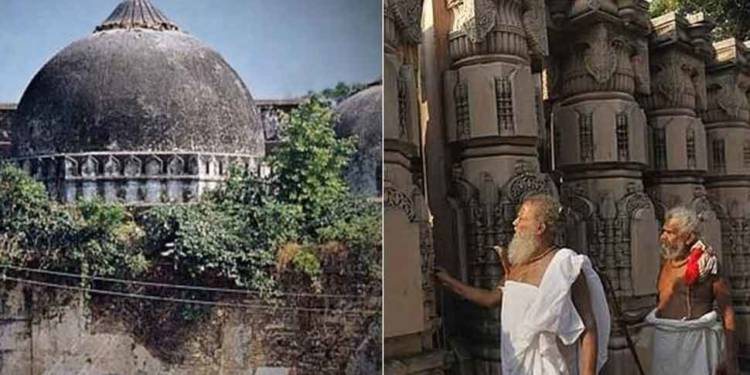The centuries old Shree Ramjanmabhoomi dispute has certainly tested the patience of the Hindu community which has been demanding the restoration of the religious site for long. As we approach nearer to a verdict by the apex court on the matter, this case has also provided a deep insight into the social dynamics of our country. While the case majorly revolves around the binary of Hindu and Muslim parties both staking their claim on the religious site, there have been breakaways particularly among the Muslim parties. On one hand while Hindu parties have voiced the demand of a Ram temple in unison, on the other hand Muslims primarily Shia commmunity and Sunni community have held counter positions on the issues.
Shias taking the forefront in Indian ethos of unity have largely been supportive of giving up any claim to the religious site and have reiterated their will supporting the construction a ram temple in Ayodhya. Speaking to The Indian Express Uttar Pradesh Shia Waqf Board chairman Waseem Rizvi had said, “The need for the appeal arose as Sunnis have sought permission to offer namaz at disputed sites where mosques now stand… But that is not the solution. Finding solutions to Ramjanmabhoomi and Babri Masjid dispute is not the solution because another similar issue may crop up as there 11 such major sites, where mosques were allegedly constructed after destroying temples. As offering namaz is not allowed at disputed sites, I made an appeal to all followers of Islam to hand over the sites to Hindus to correct the mistakes of ancestors.”
Ove the past few years the Shia community of India has definitely found its voice. They were side-lined by the dominant Sunni community in All India Muslim Personal Law Board and therefore in 2005, a separate entity named All India Shia Personal Law board was constituted.” Shias and Sunnis do not interpret family laws in a similar way. Shiites also have different Mosques and Burial grounds in India,” said Maulana Mirza Mohammed Athar, president of the breakaway All India Shia Personal Law Board.
In the final written submission to the apex court the Shia Waqf board has reiterated similar views and said that a Ram temple should be constructed at the disputed site in Ayodhya. Also taking aim at the Sunni side , The Shia waqf board pointed out that it is rightful owner of the disputed land, not the Sunni Waqf Board and that the land that was given to the Sunni Waqf Board in the high court order should be now given to the Hindu parties.
Sunni parties mainly represented by the Sunni Waqf board have however maintained their claim on the Ramjanmabhoomi site where Mughal invaders had reportedly constructed a mosque over an existing Ram temple. During the hearings, the Board’s counsel Rajeev Dhawan had also demanded restoration of Babri Masjid to its form before it was destroyed on December 6, 1992.
While Hindu parties and Shia Muslim parties are likely to agree over the return of the land for rightful construction of the Ramjanmabhoomi Temple, Sunni Muslim parties have largely been opposing this synergistic resolution and have stood fast to their demands of essentially asking for reconstruction of the Babri masjid.
It is to note that no namaz or any Muslim religious activities were being offered at the Mughal colonial structure at the Ramjanmabhoomi site for long before it was brought down during protests in Ayodhaya. Nonetheless it remains to be seen if the efforts of unity by the Shia Muslims are hindered by the majority of Sunni Muslim community or finally Indian society will correct this historic wrong by constructing a Shree Ram temple at the site.




























